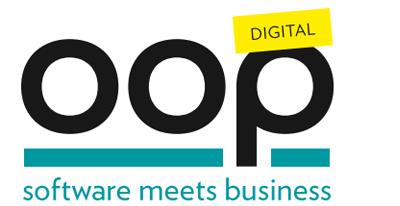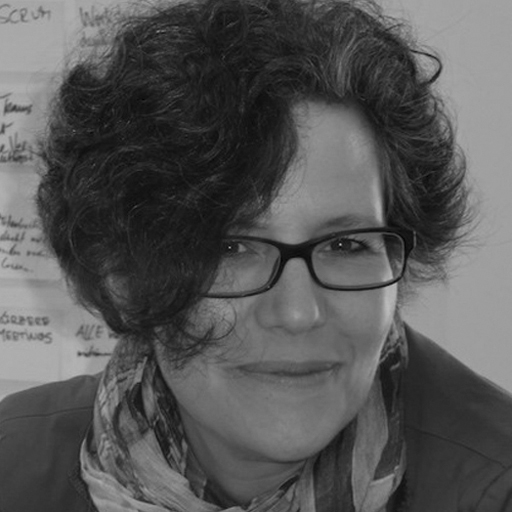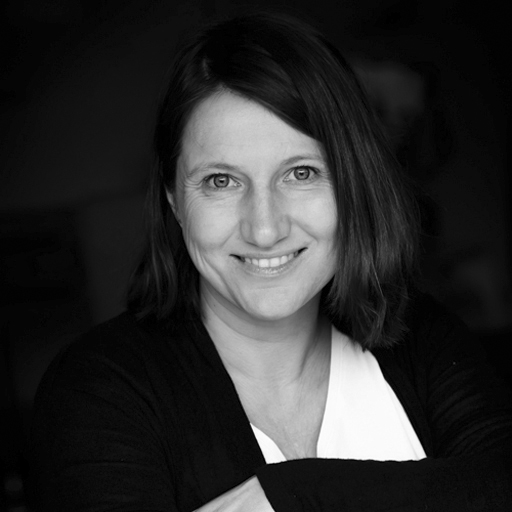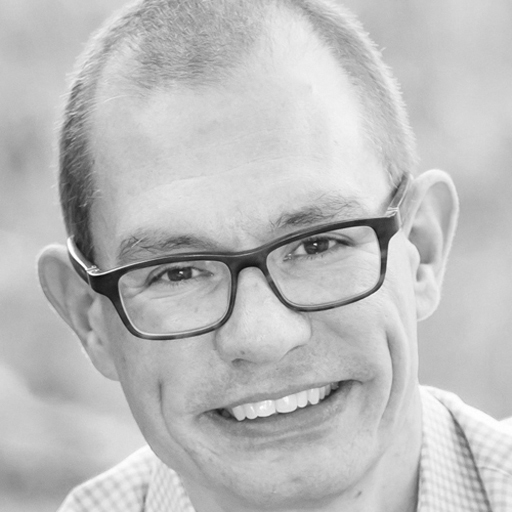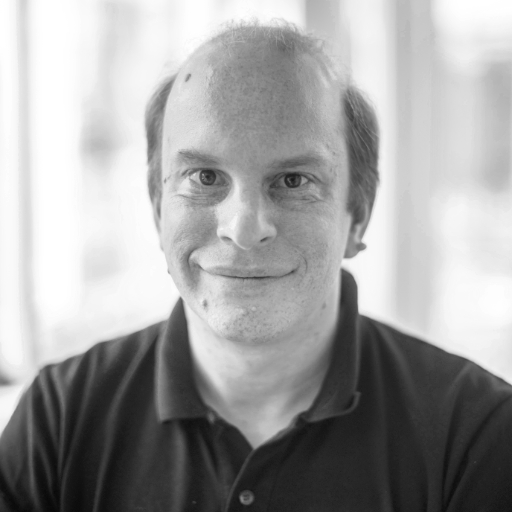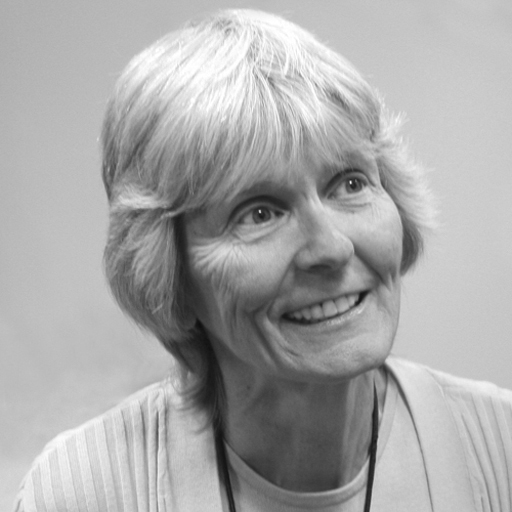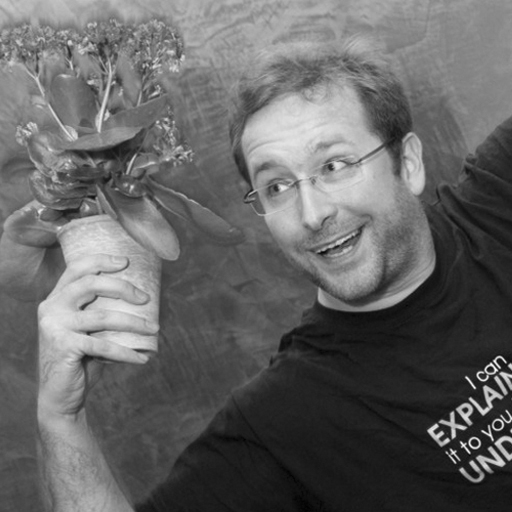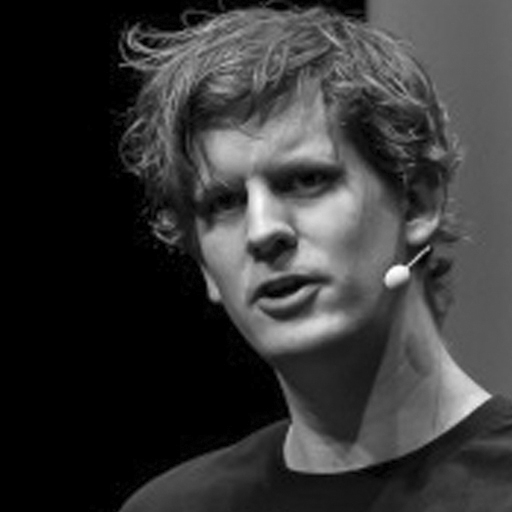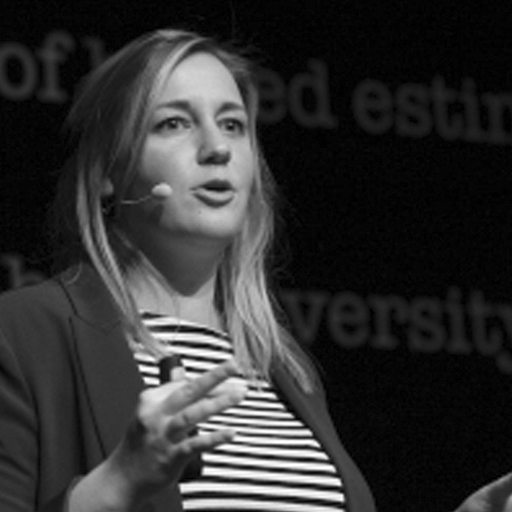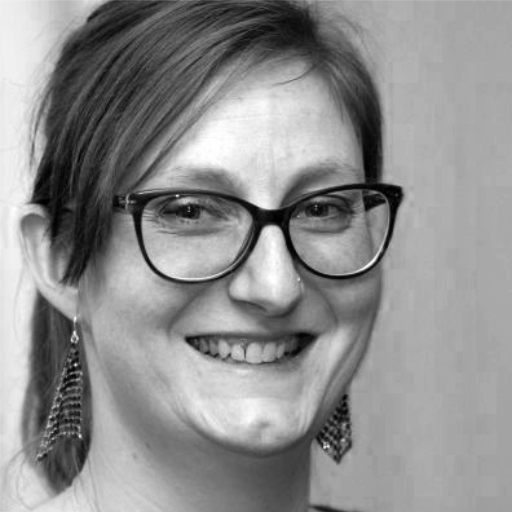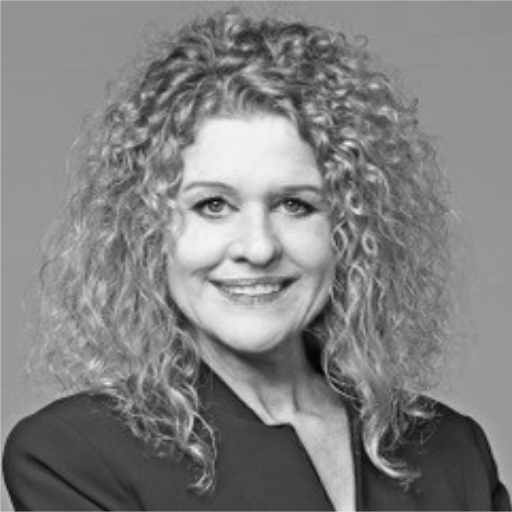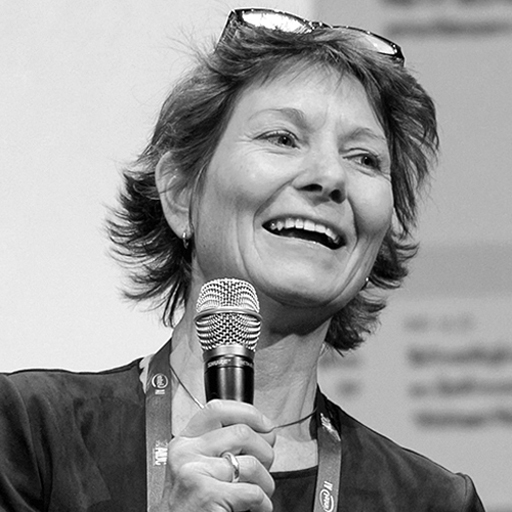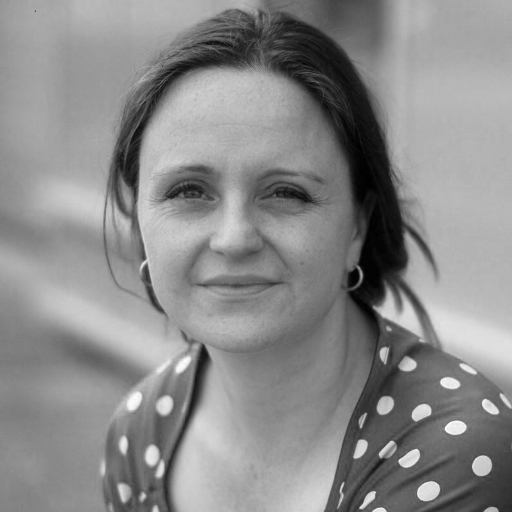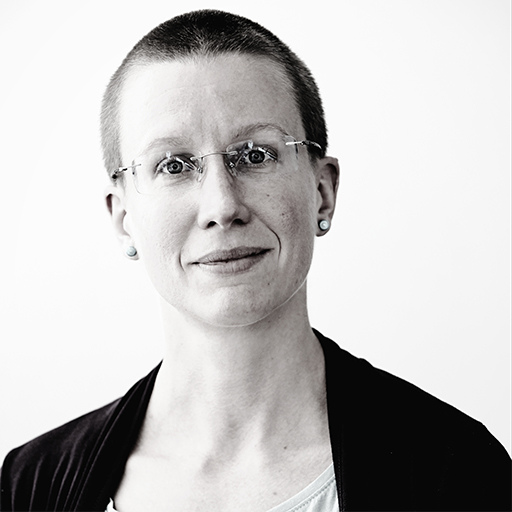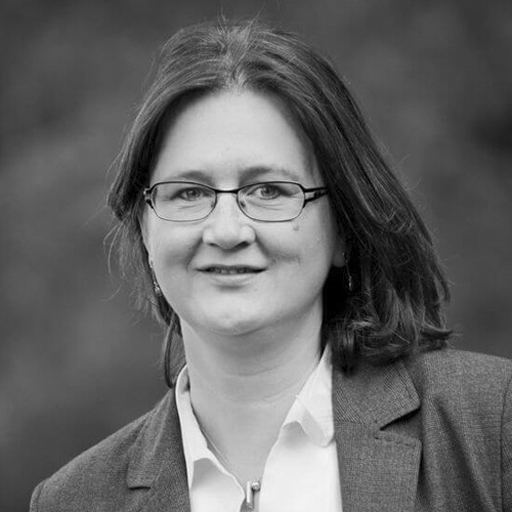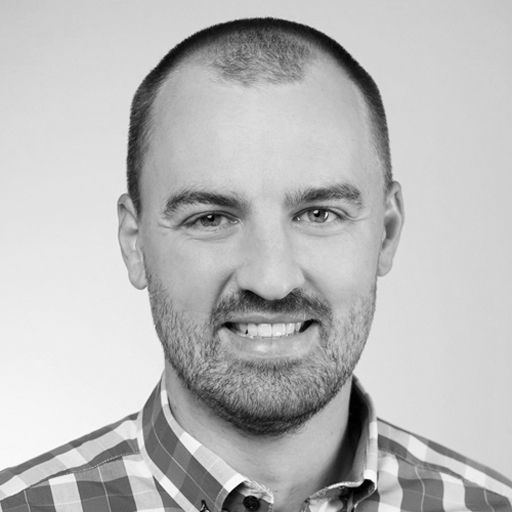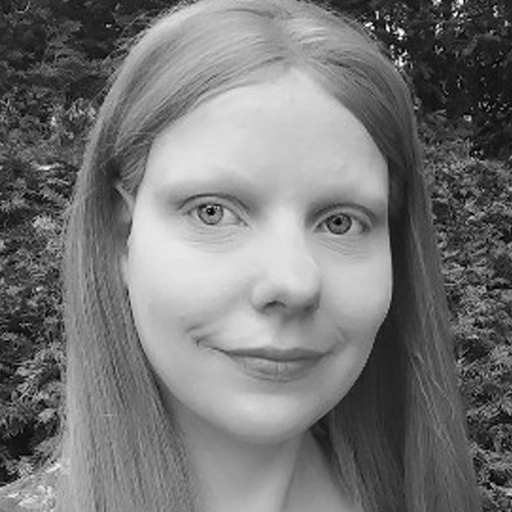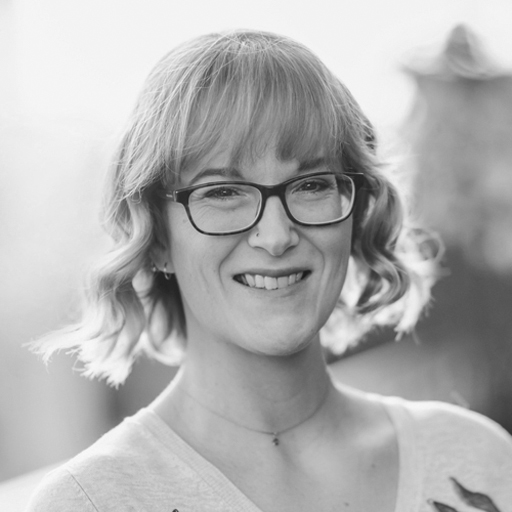SOFTWARE MEETS BUSINESS:
Die Konferenz für Software-Architektur
08. - 12. Februar 2021, Online-Konferenz

RÜCKBLICK AUF DAS PROGRAMM 2021
Thema: Soft Skills/Social Skills
- Montag
08.02. - Dienstag
09.02. - Mittwoch
10.02. - Donnerstag
11.02. - Freitag
12.02.
Retrospectives are indispensable for continuous learning and improvement in Lean, Agile, DevOps, and other contexts. But too many organizations run retrospectives “in name only,” and fail to generate the value they promise. In this tutorial, Aino introduces common antipatterns that undermine the effectiveness of retrospectives, and shows exactly how to overcome each of them.
In a mixture of short presentations and activities we will look at body language, psychology behind retrospectives, online retrospectives, types of retrospectives, etc.
Target Audience: Facilitators, project leaders, managers, coaches, team leaders, Scrum Masters
Prerequisites: Have facilitated retrospectives or wants to facilitate them in the future
Level: Advanced
Extended Abstract:
Using the familiar “patterns” approach, she introduces antipatterns related to team and meeting structure, inadequate or counterproductive planning, human interaction, and much more. From “blaming and naming” to too much smalltalk, negativity to cultural disconnects in distributed teams, Aino reveals traps she’s encountered in leading hundreds of retrospectives – and presents proven solutions. With her insights and guidance, you can run retrospectives that deliver actionable improvements and concrete value — not just once, but over and over again.
Vortrag Teilen
Let’s reflect on the value of variety for avoiding blind spots. For this, we’ll explore some barriers we face when encountering different viewpoints. We’ll practice ways to change perspectives & build on others’ opinions. And we’ll take a look at how small changes in attitude can benefit all of us.
There will be input on general foundations for healthy & productive teams, like psychological safety & having a “good mix” (e.g. in culture, function & gender). We’ll also develop ways to ensure that these rich inputs are applied to a common goal.
Maximum number of participants: 25
Target Audience: Leaders, Developers, Managers, Teamplayers
Prerequisites: Curiosity and willingness to challenge one's own habits
Level: Basic
Extended Abstract:
Some of us have been privileged enough to usually have their voice heard, when they spoke up. That often happened at the price of others not being listened to, their needs and opinions being disrespected and the effects on their wellbeing being ignored. These injustices have been committed across vocations, generations, intentions and cultures. One common denominator for these wrongs is the inability to change perspective. So, let’s start by flexing and training that muscle!
As an introduction to my workshop I will give some input on how I define a healthy team. To me, this has to do with psychological safety and including different views. I will speak about some factors that determine and enable psychological safety, basically that it is safe to show yourself vulnerable. Once we can bring our authentic selves to the table, we need to be seen. This in turn requires the others to be able to change perspective. If we don’t achieve this, we will always risk having huge blind spots, as our own experiences, skills, opinions and backgrounds determine how we perceive our environment.
I will demonstrate the effect of having blind spots with 2-3 fun exercises and reflect the learnings with the participants. We will map this with findings from research on how our cultural backgrounds shape our perception.
In creativity and innovation, we use a range of tools that help people consider different perspectives and look at problems from several angles. I will share some examples and discuss the benefits they bring and how these can be applied outside of creativity workshops.
Then I will outline three concepts I apply in my work: separating different types of thinking, unconditional appreciation and appreciative inquiry. The participants will apply this in an interactive simulation which involves stating an opinion, changing perspective and reflecting on the effects of this.
Finally, I will provide some insights from the field of creativity on how to train our ability to change perspectives and what evaluation and judgment do to our flexibility and our capacity for inclusion.
If the situation warrants it (and the participants wish for it), I will include suggestions how to incorporate the workshop learnings for remote settings.
You will learn
1. why teams need psychological safety and a “good mix” to be healthy,
2. to watch out for some barriers to open minded and inclusive habits and
3. how to train your abilities to change perspectives and be more inclusive.
Some architecture decisions are more consequential and higher impact than others, and need to be preserved. We work on systems where the architecture is too large for each person to hold all the details in their head. New team members struggle to understand what they need to know about the architecture. Current team members have challenges knowing what architecture decisions were made, by whom, and for what reason. Architecture Decision Records (ADRs) are a useful, agile, lightweight approach to tackling these, and other challenges.
Target Audience: Anyone who affects, or is affected by architecture decisions
Prerequisites: Some experience in software design and architecture would be beneficial
Level: Advanced
Extended Abstract:
Are you working on a system where the architecture is too large for each person on the team to hold all the details in their head for all time? Do new team members struggle to understand what they need to know about the architecture? Do current team members have challenges in knowing what architecture decisions were made, by whom, and for what reason? Some architecture decisions are more consequential and higher impact than others, and need to be preserved.
The right level of architecture documentation supports agility. Architecture Decision Records (ADRs) are a useful, lightweight approach for this. Often no more than a page in length, they capture the key decisions that we need to remember. This hands-on session shares experiences with ADRs, giving you a set of tools to be successful in your team.
Through this interactive session we will explore these questions together:
What are Architecture Decision Records (ADRs) and why are they useful?
How do ADRs promote or help agility?
What are the motivations that led to trying ADRs for preserving decisions?
What are some scenarios and examples where ADRs are helpful?
What kinds of decisions should we record with ADRs, and why?
What are some of the cultural challenges associated with using ADRs, and how do we address them?
This session provides participants with hands-on practice of creating and reviewing ADRs. The session draws from experiences with multiple large-scale, global organisations and system architectures, and builds on established work with ADRs from other authors and practitioners.
Vortrag Teilen
Google, SAP, Intel, Apple, Bosch, Siemens, BMW, Daimler, Telekom ... Es gibt heutzutage kaum ein großes Unternehmen ohne Mindfulness-Initiative. Zukunftsforscher Matthias Horx spricht sogar von Achtsamkeit als Megatrend.
Ist das nicht alles Fake oder esoterisches SchiSchi?
Haben wir keine anderen Probleme?
Und hat andererseits das, was da in Unternehmen stattfindet, überhaupt etwas mit Achtsamkeit zu tun?
Dieser Vortrag setzt sich hoffnungsvoll und zugleich kritisch mit Achtsamkeit in der IT auseinander, mit Pros, Cons, Chancen und Risiken.
Zielpublikum: Alle, die mehr über Achtsamkeit als Trend in Unternehmen erfahren möchten
Voraussetzungen: Keine
Schwierigkeitsgrad: Anfänger
Extended Abstract:
Google, SAP, Intel, Apple, Bosch, Siemens, BMW, Daimler, Telekom ... Es gibt heutzutage kaum ein großes Unternehmen ohne die ein oder andere Initiative für Achtsamkeit (engl. Mindfulness). Zukunftsforscher Matthias Horx spricht sogar von Achtsamkeit als Megatrend.
Ist das nicht alles nur Fake oder esoterisches SchiSchi?
Haben wir keine anderen Probleme?
Und hat andererseits das, was da in Unternehmen stattfindet, überhaupt etwas mit Achtsamkeit zu tun?
Dieser Vortrag setzt sich mit Achtsamkeit in Unternehmen auseinander. Den damit verknüpften Pros und Cons, Chancen und Risiken. Wir betrachten hoffnungsvoll und zugleich kritisch, wie Mindfulness und IT zusammenwirken (können).
Melanie Wohnert ist Diplom-Mathematikerin, ehemalige IT-Führungskraft und begeisterte Agilistin.
Achtsamkeit veränderte ihr Leben in kleinen Schritten und in vielerlei Hinsicht. Heute ist sie selbstständige Trainerin, lehrt Agilität, Achtsamkeit und Mitgefühl (MSC) in Unternehmen sowie in Schulen. Sie leitet zudem den Trainer-Zertifizierungslehrgang für "Mindfulness in Organisationen" (MIO) in Süddeutschland.
Mehr Inhalte dieses Speakers? Schaut doch mal bei sigs.de vorbei: https://www.sigs.de/autor/Melanie.Wohnert
Durch die Corona-Kontaktbeschränkungen blieben alle Schulkinder plötzlich zu Hause. Viele Eltern waren nun in der Rolle des Lehrers/der Lehrerin. Mein Sohn und ich haben uns u.a. mit Daily Standups organisiert, um mit dieser ungewohnten Situation und den sich alle paar Tage ändernden Vorgaben zurechtzukommen. In dieser Zeit habe ich viele Beobachtungen und Erfahrungen gemacht, die auch in "großen" Teams relevant sind, die dort aber gerne vergessen oder ignoriert werden. Deshalb möchte ich die Parallelen aufzeigen und zum Nachdenken anregen.
Zielpublikum: Scrum Masters, Agile Coaches, Team-, Projektleiter*innen, Entwickler*innen
Voraussetzungen: Interesse, aus fachfremden Erfahrungen fürs eigene Umfeld zu lernen
Schwierigkeitsgrad: Anfänger
Extended Abstract:
Mitte März 2020 passierte es. Aus einer Nation von Fußballtrainern wurde über Nacht ein Land von Lehrern. Gezwungenermaßen. Zu Hause. Durch die Corona-Kontaktbeschränkungen und die damit verbundenen Schulschließungen mussten Kinder nun plötzlich zu Hause unterrichtet werden. Der Alltag mit unserem Viertklässler sah nun wie folgt aus: Um 9 Uhr fand das Daily Standup Meeting an der Küchentür statt, wo wir mit Post-its den Tag planten. Anschließend wurde gelernt und geübt, zusammen und allein. Was wir dabei erlebt haben und was mir dabei aufgefallen ist, davon möchte ich in diesem Vortrag berichten.
Gab es sensationelle neue Erkenntnisse? Nein. Aber genau das war das Augenöffnende - weil es oft die erschreckend einfachen Verbesserungen waren, die uns vorangebracht haben. Wie all die kleinen Dinge, die uns im Projektalltag helfen könnten, die wir aber allzugerne vernachlässigen oder vergessen.
Dieser Vortrag soll mit einem Augenzwinkern auf ziemlich ungewohnte Wochen zurückblicken. Und mit den nicht zu übersehenden Parallelen zum Nachdenken anregen, wenn es in unseren (Software-)Teams mal wieder nicht ganz so rund läuft.
Thomas Much ist Technical Agile Coach für Die Techniker (TK) in Hamburg. Zusammen mit seinen Coaching-Kolleg:innen unterstützt er Teams dabei, in der Zusammenarbeit und den agilen Programmierpraktiken immer besser zu werden – unter anderem durch die Förderung von Pair- und Team-Programming, TDD und Testautomatisierung. Dabei ist häufig ein Thema, wie man mit angemessenen Code-Designs und Architekturpatterns die Testbarkeit von neuem Code erreicht bzw. in vorhandenem Legacy-Code erhöht.
Mehr Inhalte dieses Speakers? Schaut doch mal bei sigs.de vorbei: https://www.sigs.de/autor/thomas.much
Vortrag Teilen
Vortrag Teilen
If you’re not making mistakes, you have no chance to learn enough! This is especially true in complex situations, where, more often than not, the difference between a success and a failure can only be seen in hindsight. Which is why it pays off to dare new things, even if that might mean you can go wrong–as long as you don’t make the same mistake twice!
In this interactive talk we will explore how psychological safety, creativity, complexity and motivation are connected. And we will exercise our “No Blame – More Flame” mentality.
Target Audience: Testers, Developers, Leaders, Managers, Teamplayers
Prerequisites: Curiosity and willingness to challenge one's own habits
Level: Basic
Extended Abstract:
Let’s remember, that in the beginning of IT and software development there was no chartered territory. There was no right or wrong path – great minds dared to venture on into new lands. And sometimes they failed. Spectacularly or subtle, with a chance of correction or at huge (monetary) sunk costs. But always with great learnings, albeit not always good documentation.
Yet in school and in life we often get punished for failures. And as a result, we learn that pointing the blame away from ourselves pays off. This is not only bad for the climate and culture in a team or in an organization, it is also detrimental when it comes to our ability to learn. Especially in uncertain and complex contexts, where this ability is crucial to survive and thrive. When we block our learning capabilities, we lose our powers to deal with the unknown, to adapt to new and emerging information, to explore solutions. This inhibits progress and kills motivation.
While most of the above facts are common sense or even common knowledge, it is quite hard to break the mental and behavioral habits we were taught throughout education and our work-lives.
In this talk I will summarize the concept of psychological safety and the effects of a psychologically safe culture on creativity and solution focus in teams. I will introduce a “tool” to adopt a more open-minded and learning focused mindset. The participants will get the opportunity to discuss how the tool can be applied in their individual contexts. Also, I will let the participants exercise a method which helps to change the interpretation of mistakes as something dangerous and evil to something viewed as valuable and helpful. The method uses failures as steppingstones to come up with improved solutions, which not only enhances the results but also lets us question our mistake-habits. Finally, I will wrap things up by speaking about how handling errors affects motivation.
When facilitating retrospectives, there is often a focus on the agenda, the activities and the experiments you take away from the retrospective. Also, there might be a technical theme for the retrospective, but the people and the process for cooperation and communication is often what you end up discussing.
I will provide you with tips and tricks for how to avoid neglecting the human aspect of your retrospectives; the trust, the different personality types, the feeling of safety, and what you can pick up from the body language.
Target Audience: Facilitators, project leaders, managers, coaches, team leaders, Scrum Masters
Prerequisites: Have facilitated retrospectives or wants to facilitate them in the future
Level: Advanced
Vortrag Teilen
Vortrag Teilen
Ein weit verbreiteter Glaube ist, dass nur konstante Teams langfristig zu hochperformanten Teams werden können. Jede Veränderung löst Teamprozesse aus, die das Team daran hindern, sich auf das Wesentliche zu fokussieren. Doch passt das nicht immer zum Kontext, in dem wir uns bewegen. Im Vortrag geht es um einen dynamischeren Ansatz, in dem sich die Teams nach Anforderung unterschiedlich formen. Neben dem Konzept geht es in dem Vortrag auch um die dafür notwendigen Rahmenbedingungen.
Zielpublikum: Projektleiter:innen, Scrum Master und alle, die mit größeren Teams arbeiten
Voraussetzungen: Grundkenntnisse von agilen Methoden und Teamdynamiken
Schwierigkeitsgrad: Fortgeschritten
Extended Abstract:
In verschiedenen Projekten stellen wir immer wieder fest, dass es ein sehr starres "Die Teams müssen konstant sein"-Denken gibt. Das ist auch häufig nützlich, aber nicht immer. Wir haben gute Erfahrungen mit dem Konzept von Floating Teams gemacht. Diese arbeiten an einem zentralen Backlog und bilden sich für jede Aufgabe neu. Entstanden ist das Konzept in einem Projekt, wo am Beginn nicht klar war, wie wir die Teams gut aufstellen können. In der Selbstorganisation haben sich nicht, wie erwartet, konstante Gruppen herausgebildet, sondern ein sehr gut funktionierendes, dynamisches Gebilde. Rückblickend wurde deutlich, dass ein zentrales Backlog, ein gemeinsames Big Picture (hier durch Story Mapping) und Erfahrung in der Arbeit in echten Teams notwendige Voraussetzungen sind.
Ich möchte mit diesem Vortrag Denkanstöße geben, aus dem starren Denken "konstante Teams" auszubrechen, und eine andere Option der Zusammenarbeit aufzeigen. In Trainings stelle ich es mittlerweile parallel zu anderen Skalierungsframeworks um zu zeigen, dass man mit sehr einfachen Mitteln, ohne komplexe Frameworks und Änderungen schon zu der Entwicklung guter Produkte beitragen kann.
Vortrag Teilen
In speaking about better ways of thinking and problem-solving, Linda has introduced Jonathan Haidt's model for the brain. He proposes that the rational, conscious mind is like the rider of an elephant (the emotional, unconscious mind) who directs the animal to follow a path. In Fearless Change, the pattern Easier Path recommends making life easier to encourage reluctant individuals to adopt a new idea. Linda suggests that in conversations with others who see the world differently, we "talk to the elephant" instead of the "rider." That is, don't use logic or facts, but appeal to the emotional brain of the resistor as well as making the path more attractive. There is always the question: What's the best way to talk to the elephant? This presentation will provide some answers. Listeners will learn the best elephant-speak based on the latest research in cognitive neuroscience and also hear suggestions for providing an Easier Path.
As architects become more senior, we are expected to contribute to growing the product, the organization, and the people. This session explores three roles of an architect that help them meet these expectations: architect as leader, as mentor, as coach. This session offers practical tools, methods, and frameworks that help both experienced and aspiring architects succeed in each of these roles.
Target Audience: Architects, engineers, developers, managers, senior/principal/distinguished engineers
Prerequisites: Curiosity about how architects can be effective leaders, mentors, and coaches
Level: Advanced
Wieso haben wir so häufig das Gefühl, nur von Idiot:innen umzingelt zu sein? Was schürt in uns den Verdacht, dass die anderen immer so blöd sind? Wieso sind Geschäftsführer:innen so ignorant und verschwenderisch, Entwickler:innen so borniert, Admins so unfähig und Projektmanager:innen so ahnungslos? Wieso versteht eigentlich niemand Agile?
Wir wollen die Symptome der Idiotie betrachten und Ursachenforschung betreiben; herausfinden, warum wir selbst idiotisch sind und weshalb wir viel mehr Zeit zum Lernen brauchen.
Zielpublikum: Jeder, der mit anderen Menschen zusammenarbeitet
Voraussetzungen: Man hat sich dabei erwischt, andere für idiotisch zu halten
Schwierigkeitsgrad: Anfänger
Extended Abstract:
Wieso haben wir so häufig das Gefühl, nur von Idiot:innen umzingelt zu sein? Was schürt in uns den Verdacht, dass die anderen immer so blöd sind? Wieso sind Geschäftsführer:innen so ignorant und verschwenderisch, Entwickler:innen so borniert, Admins so unfähig und Projektmanager:innen so ahnungslos? Wieso versteht eigentlich niemand Agile?
Wir wollen die Symptome der Idiotie betrachten und Ursachenforschung betreiben; herausfinden, warum wir selbst idiotisch sind und weshalb wir viel mehr Zeit zum Lernen brauchen. In diesem Zusammenhang werden wir uns Cognitive Biases, Logical Fallacies, Heuristiken und das Fixed und Growth Mindset ansehen.
Do you find yourself, or your team facing unsolvable problems? Problems that start to polarise and get decided by the people with the most rank? Or the majority vote decided and it resolves in a split in the team or in people feeling left out, or excluded? Perhaps you find yourself excluded from a team or company? Polarities cannot be solved, only managed. With polarity mapping we manage that polarity and go from either-or thinking to both-and thinking, and this way includes the entire team in managing that polarity.
Target Audience: Architects, Developers, Decision Makers, CTO, Tech Leads, designers, facilitators
Prerequisites: None
Level: Advanced
Extended Abstract:
Do you find yourself, or your team facing unsolvable problems? Problems that start to polarise and get decided by the people with the most rank? Or the majority vote decided and it resolves in a split in the team or in people feeling left out, or excluded? Perhaps you find yourself excluded from a team or company? And the moment you think you solved it they come back again. The thing is, polarisations like these cannot be solved, like breathing in and breathing out but need to be managed. If we don't, we will make compromises or stay in one polarity and experience the downside of both. To identify and manage polarities, we need to discuss and start using polarity mapping.
In this session, we will interactively expose you to polarity thinking. We will explore how to identify polarities and how we can start managing them with Barry Johnson Polarity Mapping. We will take a common polarity in software design, like too much vs too little upfront design, mob/pair programming vs programming in isolation, and planning vs taking action. By filling in the polarity map together, we show you the power of visualisation to manage the polarity. We will go from either-or thinking to both-and thinking, and this way includes the entire team in managing that polarity.
Vortrag Teilen
Circa 20000 Entscheidungen treffen wir Menschen täglich. Und obwohl der Mensch ein vernunftbegabtes und rationales Wesen ist, sind eine Vielzahl dieser Entscheidungen augenscheinlich weder vernünftig noch rational.
Auch eine positive Bewertung von Diversität und Inklusion besteht aus vielen täglichen Entscheidungen der Beteiligten. In diesem Vortrag gehen wir der These und Erkenntnis nach, dass eine wichtige Grundlage für mehr Gleichberechtigung und Inklusion ein größeres Bewusstsein der eigenen psychologischen Entscheidungsprozesse ist.
Zielpublikum: Führungskräfte, Teams, Projektmanager:innen, Organisationsentwickler:innen, HR, Entscheider:innen, Agile Coaches
Voraussetzungen: Keine
Schwierigkeitsgrad: Anfänger
Extended Abstract:
Selbstorganisation, Diversität, Empowerment - dazu noch eine Prise Agilität und Servant Leadership - und fertig ist das High Performing Team. Warum das nicht so einfach ist? Nun ja, was logisch klingt, muss nicht unbedingt gleich auch so empfunden werden.
Circa 20000 Entscheidungen, so sagen Verhaltensforscher, treffen wir Menschen täglich. Und obwohl der Mensch ein vernunftbegabtes und rationales Wesen ist, sind eine Vielzahl dieser Entscheidungen augenscheinlich weder vernünftig noch rational.
Auch eine positive Bewertung von Diversität und Inklusion besteht aus vielen kleinen täglichen Entscheidungen der beteiligten Personen. In diesem Vortrag gehen wir nun der These und Erkenntnis nach, dass eine wichtige Grundlage für mehr Diversität, Gleichberechtigung und Inklusion ein größeres Bewusstsein der eigenen psychologischen Entscheidungsprozesse und Fehlinterpretationen ist.
Kognitive Verzerrung und Gruppendenken sind nur zwei Typen der vielen selbstgestrickten Fallen, in die wir in unserem täglichen Miteinander hineinfallen. Dieser Vortrag möchte dazu beitragen, die eigenen Denkmuster, Fehlinterpretationen und Saboteure früher zu erkennen, um dann eine Chance zu besitzen, bewusst gegenzusteuern.
Vortrag Teilen
"Change the system - not the people!" Leichter gesagt, als getan. Um in Organisationen wirkliche Veränderungen hinsichtlich Diversität und Inklusion zu erzielen, müssen wir im Sinne des systemischen Ansatzes ganzheitlich alle Interaktionen zwischen Menschen, Markt und Gesellschaft betrachten. Hierfür zeigen wir eine strukturierte Situationsanalyse der vier systemischen Dimensionen in Organisationen. Mithilfe dieser systemischen Analyse lassen sich schnell und punktgenau Systemverletzungen und Wirkungsgefüge, sowie Lösungswege identifizieren.
Zielpublikum: Führungskräfte, Teamleiter:innen, (agile) Coaches, Scrum Master, Projektleiter:innen, Change Manager
Voraussetzungen: Keine
Schwierigkeitsgrad: Fortgeschritten
Extended Abstract:
"Change the system - not the people!" Leichter gesagt, als getan. Um in Organisationen wirkliche Veränderungen hinsichtlich Diversität und Inklusion zu erzielen, müssen wir im Sinne des systemischen Ansatzes ganzheitlich alle Interaktionen zwischen Führungsebene, Mitarbeitenden, Kolleg:innen, Kunden, Lieferanten, Finanziers, Markt, Gesellschaft, Kultur und Umwelt betrachten.
Hierfür zeigen wir eine strukturierte Situationsanalyse der vier systemischen Dimensionen in Organisationen. Mithilfe dieser systemischen Analyse lassen sich schnell und punktgenau Systemverletzungen und Wirkungsgefüge, sowie Lösungswege identifizieren. Dies tun wir gemeinsam anhand vieler Beispiele und spielerisch interaktiv.
Die Zuhörenden erhalten Einblicke und Perspektiven für einen systemischen Change-Ansatz und Haltung:
• Die systemischen Gesetze in Organisationen und deren Bedeutung im Kontext Veränderung
• Die 4 Grunddimensionen gesunder Organisationen und leistungsstarker Teams
• Auswirkungen von Systemverletzungen
• Wo sind die individuellen Hebel zur Veränderung, und wo herrschen gravierende Systemverletzungen vor?
Susanne Mühlbauer ist selbstständiger Agile Coach und systemischer Business Coach. Mit Leidenschaft und viel persönlichem Engagement arbeitet sie mit Menschen, Teams und Organisationen auf deren Weg zu mehr Agilität.
Vortrag Teilen
At the core of agile development are self-organizing cross-functional teams. Yet, this is often understood as e.g. backend & front-end developers working together. If an organization is aiming for company-wide agility, to fully benefit from agility it has to enable teams as value centers that are truly cross-functional by bringing in different perspectives from business, markets, cultures, beliefs etc. This way cross-functional teams overcome not only the limitations of organizational silos but also of a singular view on the market.
Target Audience: Project Leader, Manager, Decision Makers, in general everyone
Prerequisites: None
Level: Advanced
Extended Abstract:
Too many products have been developed that serve one kind of client only. The reason is that the composition of the teams leads (subconsciously) to the development of products that serve only people that resemble the people in the team. One “famous” example is the soap dispenser that only works if your hands are white.
If teams are really cross-functional and are resembling the diversity of the market, the products they’re creating are also better. Thus, if the whole team has the full business expertise, knows the market, reflects the full diversity of the clients, then it can even disrupt the market and isn’t waiting for some person (e.g. the Product Owner) to decide on priorities. With this real cross-functionality the team can fully understand the company’s business and has a holistic view of it, knowing its contribution to the company’s value stream.
Real cross-functional teams are an essential building block for implementing company-wide agility and the organization benefits by creating better and in a way more real products and by having more options when entering the war of talent.
Jutta Eckstein arbeitet weltweit als Business-Coach, Change-Managerin & Beraterin. Ihr Fokus liegt auf unternehmensweiter Agilität in großen & verteilten Organisationen. Sie war von 2003 bis 2007 im Vorstand der AgileAlliance. Sie hat einen M.A. in Business Coaching & Change Management, einen Dipl.-Ing. in Product-Engineering und ist als Immissionsschutzbeauftragte (Umweltschutz) zertifiziert. Jutta wurde 2011 von der Computerwoche in die Top 100 der bedeutendsten Persönlichkeiten der Deutschen IT gewählt.
Mehr Inhalte dieses Speakers? Schaut doch mal bei sigs.de vorbei: https://www.sigs.de/autor/jutta.eckstein
Maryse Meinen is a product leader, currently working in a product owner role, building a full-blown container platform for a new IT infrastructure, together with an awesome team. She is also an active practitioner of Stoic philosophy, trying to live according to values like "humans are made for cooperation", "wisdom" and "perseverance". Always keeping an eye on the human aspect of our work, she strives to humanise our workplace a bit more every day.
Vortrag Teilen
"How is a diary connected with leadership?" and "how can this change our future?" you might be wondering.
In this session you will get some answers. You will benefit from my extensive experience with (business) journaling. And you will be introduced to psychological science that makes written self-reflection so powerful.
So...
- You want live up to YOUR values?
- You want to change habits in your life's "departments"?
- You want to harvest outstanding outcomes - at work and beyond?
YES?
Then join and get ready for leadership in ACTion!
Target Audience: Developers, Architects, System Engineers, Managers of all kind, human beings ;-)
Prerequisites: Curiosity and openness for new ways of thinking
Level: Basic
Extended Abstract:
During my career in IT and people development I had several turning points where I either was made to use journaling techniques or experimented with them myself to successfully tackle the next challenge.
Over the years some turning points "beyond business" in life followed. Also I got serious scientific foundations in my psychological studies. Having both - the science and my experience - I started reflecting why those 'written self-reflection' techniques are so powerful and – at the same time – they are still quite rarely used in the business context.
This session is suitable for all humans: curious journaling newcomers as well as seasoned written-reflection experts as I'll share my story, more than 10 years of experience and actionable tips and techniques.
Cosima Laube is an independent agile coach, leader & consultant with experience in a variety of industries (automotive, finance, healthcare, travel, public sector).
Having a strong background as developer and people lead in IT engineering, over the last decade Cosima enhanced her portfolio with solid coaching skills (ICF-PCC) and university studies focused on I/O- and Health Psychology. Besides work, you likely find her running or on a bike. Her credo at work and in life is: Achieving MORE - together!
Vortrag Teilen
Über Geld wird nicht gesprochen. Das haben wir alle nur zu gut verinnerlicht … Was, wenn doch? Wie können wir Vergütung transparent und inklusiv gestalten und gleichzeitig das Vertrauen im Team stärken? Wie können wir dabei Unterschiedlichkeit wertschätzen und individuellen Bedarf berücksichtigen? Im Workshop erkundest du deine Glaubenssätze zum Thema Geld und bekommst Einblick in unsere Erfahrungen: Auf einen erfolgreichen stärkenden Teamprozess für transparente Vergütung, der alle einbezieht!
Maximale Teilnehmerzahl: 40
Zielpublikum: Projektleiter:innen, mutige Team-Leads, Interessierte, alle
Voraussetzungen: Neugier und Lust sich einzulassen
Schwierigkeitsgrad: Fortgeschritten
Extended Abstract:
In unserem Team bei MovingMountains sind wir es gewöhnt, hierarchiefrei, selbstorganisiert, mit verteilter Führung und selbstverantwortlich zu arbeiten. Wir lieben unsere Arbeit und unser Team, wir gehen regelmäßig durch tiefe Prozesse von persönlichem und gemeinsamem Wachstum und wir begleiten andere Teams auf ihrem Weg. Wir vertrauen uns und wir sind offen für unsere Unterschiedlichkeit. Aber als es ums Geld ging, war das plötzlich nicht mehr so einfach.
Am Thema Geld kristallisieren sich so viele Ängste und Glaubenssätze, dass es aus unserer Sicht unumgänglich ist, diese mit einzubeziehen, wenn es um die Vergütung geht. Aus der alten Arbeitswelt haben viele Menschen noch verinnerlicht, dass über Gehälter nicht gesprochen wird. Das scheint auch sicherer, denn wenn wir nicht wissen, was die anderen verdienen, können wir uns auch nicht darüber streiten. Unter anderem weil nicht darüber gesprochen wird und weil die Bemessungsparameter einem Bias unterliegen, gibt es häufig noch immer große Unterschiede in der Vergütung zum Beispiel zwischen Männern und Frauen oder auch aufgrund unterschiedlicher Ausbildungswege, Erfahrungen oder Fähigkeiten. Die Frage, wer was verdient, beschäftigt uns natürlich trotzdem, denn solange wir davon ausgehen, dass unser Wert (auch) am Geld gemessen wird, macht es einen Unterschied, wie viel wir im Verhältnis zu anderen verdienen. Diese Vorstellung ist vermutlich noch vielen zueigen und die Verteilung von Geld ist auch in Zeiten von NewWork ein heikles Thema, das oft zu wenig Aufmerksamkeit bekommt. Dabei kann sich genau hier zeigen, inwiefern wir fähig und bereit sind, Unterschiedlichkeit wertzuschätzen, und individuellen Bedarf zu berücksichtigen. Deshalb haben wir einen Finanzprozess entwickelt, der sich diesem Thema widmet. In Bezug auf Vergütung braucht es vor allem Mut zur Transparenz. Und damit verbunden die Bereitschaft, sich den eigenen Sorgen und Glaubenssätzen in Bezug auf Geld zu stellen. Darüber lernt man sich selbst und auch die Kolleg:innen sehr gut kennen und es schafft ein Vertrauen im Team, das sich auch auf alle anderen Arbeitsbereiche positiv auswirkt.
Im Workshop geben wir Einblick in unsere Erfahrungen und ermöglichen neben konkreter Selbsterkundung auch Raum für Austausch und Best-Practice-Beispiele.
Vortrag Teilen
Führung ist zu wichtig, um sie nur Führungskräften zu überlassen! Darüber hinaus wollten wir bei uns die Führungsarbeit auf mehrere Schultern verteilen, Entscheidungen dezentralisieren und u.a. eine persönliche Weiterentwicklung durch eine vertrauensvolle Feedback- und Lern-Kultur ermöglichen. In diesem interaktiven Vortrag möchten wir in das Thema kollegiale Führung einführen, auf Vor- und Nachteile und Fallstricke bei der Implementierung eingehen und vorstellen, wie und warum wir unser Unternehmen in einer Kreisstruktur organisiert haben.
Zielpublikum: Entscheider:innen, Management, HR, Coaches, alle, die an alternativen Organisationsformen interessiert sind
Voraussetzungen: Grundkenntnisse agiler Methoden von Vorteil, aber nicht Voraussetzung
Schwierigkeitsgrad: Anfänger
Extended Abstract:
Führung ist zu wichtig, um sie nur Führungskräften zu überlassen! Darüber hinaus wollten wir bei KEGON die Führungsarbeit auf mehrere Schultern verteilen, Entscheidungen dezentralisieren, eine persönliche Weiterentwicklung durch eine vertrauensvolle Feedback- und Lern-Kultur ermöglichen, sowie den Fortbestand von KEGON im komplexen und dynamischen ökonomischen Umfeld sichern und nicht zuletzt KEGON wachstumsfähig machen.
Wir haben uns im letzten Jahr eine Reihe von Führungs-Modellen angeschaut und uns letztendlich für die kollegiale Führung in einem Kreismodell entschieden.
Kollegiale Führung ist die auf viele Kollegen und Kolleginnen dynamisch und dezentral verteilte Führungsarbeit anstelle von zentralisierter Führung durch einige exklusive Führungskräfte.
Im Januar 2020 sind wir mit einem Self-Selection-Workshop in die kollegiale Führung gestartet und alle Kollegen von KEGON haben in einem Kollegenkreis eine neue Heimat gefunden. Danach haben wir inkrementell daran gearbeitet, das Kreismodell von KEGON weiter auszubauen.
Wenn eine Menge kreativer Menschen sich eine neue Unternehmens- und Führungsstruktur gibt, dann geht das natürlich nicht reibungslos. Wir durften eine Menge Erfahrungen sammeln und lernen auch heute noch jeden Tag dazu.
In diesem interaktiven Vortrag, in dem wir - Mentimeter unterstützt - auch in kleinen Gruppen diskutieren wollen, möchten wir in das Thema kollegiale Führung einführen, auf Vor- und Nachteile und Fallstricke bei der Implementierung eingehen und vorstellen, wie und warum wir unser Unternehmen in einer Kreisstruktur organisiert haben.
Wir möchten unsere Erfahrungen und Lesson Learned mit Euch teilen und diskutieren. Wir möchten auch Lust darauf machen, sich mit kollegialer Führung zu beschäftigen – vielleicht ist das auch eine Organisationsform für Euer Unternehmen?
Peter Schnell ist Dipl.-Informatiker und seit 1994 in der IT-Branche tätig. Sein beruflicher Werdegang führte ihn von der IT-Projektleitung einer Versicherung über das Beratungs- und Trainingsgeschäft in die Leitung eines IT-Bereiches. Nun ist er Partner der KEGON AG und als agiler Management-Berater und Coach tätig. Seine Schwerpunkte sind das agile Coaching, agile Transitionen, Management 3.0, Management von klassischen und agilen Projekten im Banken- und Versicherungsbereich, Interims- und Personalmanagement. Er hat seine langjährige Erfahrung in eine Vielzahl von Vorträgen und Publikationen eingebracht.
Vortrag Teilen
The power of collaborative modelling comes from having a diverse group of people who, together, have a lot of wisdom. The problem here is we don’t actually listen to all the available input and perspectives due to cognitive biases and ranking. If we aren't aware of that it kills those insights and wisdom and kills the effectiveness of your models! In this talk where we will explore how we can improve our facilitation skills and focus on neuro-inclusiveness with using Deep Democracy in our design process.
Target Audience: Architects, Developers, Decision Makers, CTO, Tech Leads, designers, facilitators
Prerequisites: Facilitating or doing collaborate modelling
Level: Expert
Extended Abstract:
The power of collaborative modelling comes from having a diverse group of people who, together, have a lot of wisdom and knowledge. You would expect that all this knowledge will be put to use, co-creating, and to design a model. In reality, we don’t actually listen to all the available input and perspectives due to cognitive biases and ranking. Because not everything that needs to be said has been said, we will end up with sub-optimal models and architecture. Even worse, people don’t feel part of the solution and don’t commit to it. Good architecture and design need all the insights and perception. If we are not aware, cognitive biases and ranking kills those insights and wisdom and kills the effectiveness of your models!
Join us in this talk where we will interactively explore how we can improve our facilitation skills and focus on neuro-inclusiveness with Lewis Deep Democracy (LDD). By having a Deep Democratic discussions together on what biases are at play during liberating structures workshops, and how ranking will effect a visual collaborative modelling session like EventStorming and User Story Mapping, you will gain first-hand experience about LDD. With this experience, we will explain how we embedded LDD in our design processes. We will let you leave with the knowledge on how to observe sabotage behaviour, battle oppression, and to create safety in exploring alternative perceptions. We will show you how you can really let the group say what needs to be said and take a collective autocratic decision in designing your software models.
Vortrag Teilen
Anhand ihrer Erfahrungen mit eigenen Krebserkrankungen teilen Jasmine und Jan, was Sustainable Pace wirklich für agiles Arbeiten bedeutet. In Teams tun wir uns oft schwer damit, ein nachhaltiges Arbeiten für uns und unsere Teams zu erschaffen. In diesem Workshop ergründen wir, warum achtsamer Umgang mit der eigenen Gesundheit - und der Gesundheit unserer Teams - zu produktiveren Arbeitsumgebungen führt. Dabei entdecken wir, was jeder von uns tun kann, um gesunde und menschliche Systeme zu erschaffen, die wir heute dringender brauchen denn je.
Zielpublikum: Scrum Master, Management, Agile Coaches, Projektleiter:innen, Teammitglieder
Voraussetzungen: Neugierde und Offenheit
Schwierigkeitsgrad: Anfänger
Extended Abstract:
Im Beruflichen ist es sehr offensichtlich, dass Jasmine und Jan vieles gemeinsam haben. Beide sind Agile Coaches, lieben es, im Trainingsraum zu stehen, und betreiben zusammen den Agile Monday Rhein-Neckar. Privat verbindet sie beide noch etwas anderes: beide konnten ganz knapp eine langwierige Krebstherapie abwenden. Und das nur durch eher zufälliges Einstehen für sich selber und doch frühzeitig zum Arzt gehen.
In diesem Workshop wollen wir mit den Teilnehmenden ergründen, welche subtilen Bemerkungen und Haltungen im Arbeitsumfeld viele Teammitglieder davon abhält, für sich selber und die eigene Gesundheit einzustehen. Welche Auswirkungen dies schlussendlich auch auf die Performance des gesamten Teams hat und wie wir zusammen ein Umfeld kreieren können, in welchem für sich Einstehen kein Zufall mehr ist, sondern Selbstverständlichkeit. Denn nur, wenn jedes Individuum im Team gut für sich selber sorgt, können wir ein gesundes und nachhaltiges Umfeld für das gesamte Team erschaffen - und somit auch die Basis zu nachhaltiger Wertschöpfung.
Jasmine Simons-Zahno ist „Agile Psychologin“, die sich leidenschaftlich für die menschliche Seite der Produktentwicklung einsetzt. Ihr Masterstudium in Organisationspsychologie qualifiziert sie auf einzigartige Weise für die Auseinandersetzung mit den Hindernissen und Widerständen, welche entstehen, wenn das agile Paradigma mit traditionellen Organisationsstrukturen kollidiert. Sie hat es sich zum Ziel gesetzt, Unternehmen dabei zu unterstützen, produktive und motivierende Umgebungen zu schaffen, die Mitarbeiter ermutigen und inspirieren, ihre beste Arbeit mit Freude zu leisten.
Vortrag Teilen
Code Review wird im Allgemeinen eingesetzt, um die Code-Qualität sicherzustellen, eventuelle Fehler frühzeitig zu entdecken und Wissen im Team zu teilen.
Ich werde erklären, wie Code Reviews durchgeführt werden können und wofür sie überhaupt gut sind. Hierbei stelle ich Tools und Techniken vor, die die Reviews unterstützen.
Da die Frage, wann der Code als "richtig" angesehen wird, nicht immer einfach zu beantworten ist, will ich zusätzlich Problemlösungsstrategien für den Fall von Unstimmigkeiten vorstellen.
Zielpublikum: Software-Entwickler:innen
Voraussetzungen: Erfahrungen in der Software-Entwicklung
Schwierigkeitsgrad: Anfänger
Extended Abstract:
Es kann einiges an Überwindung kosten, anderen Leuten den eigenen Code zu zeigen. Erst Recht in der Absicht, dass die andere Person den Code kritisch bewerten soll. Diesen Vorgang nennt man Code Review.
Code Review wird im Allgemeinen eingesetzt, um die Code-Qualität sicherzustellen, eventuelle Fehler frühzeitig zu entdecken und Wissen im Team zu teilen.
Hierbei wird zwischen formeller und informeller Code Review unterschieden, welche beide in diesem Talk vorgestellt werden.
Zudem werde ich erklären, wie Code Reviews durchgeführt werden können und wofür sie überhaupt gut sind. Hierbei stelle ich Tools und Techniken vor, die die Reviews unterstützen.
Die Frage, wann der Code als "richtig" angesehen wird, ist nicht immer einfach zu beantworten. Nicht immer beschränken sich Unstimmigkeiten rein aufs Technische, sondern haben immer auch eine persönliche Ebene. Daher will ich zusätzlich Problemlösungsstrategien vorstellen.
Wenn Code Reviews richtig durchgeführt werden, können sie eine lohnende Erfahrung für alle Beteiligten sein.
Vortrag Teilen
Working in teams we face problems in our daily work. As a team, we should be able to solve problems collaboratively. Agile calls these problems impediments.
Impediments can be something in the way of working, processes, tools, or organizational rules or structures. They can also be something cultural or structural.
In this mini-workshop we'll practice solving an impediment as a team. Next, we'll explore how we solved it, how we worked together. What hindered and helped us. We'll learn what we can do to collaborate better.
Maximum number of participants: 60
Target Audience: Scrum masters, tech leads, agile coaches, consultants, developers, testers, managers, CxOs
Prerequisites: Some experience of working in teams
Level: Advanced
Extended Abstract:
This is a hands-on mini-workshop about collaborative problem-solving. It will be an interactive session where people work together to solve a problem in a kind of role-play. Next, we'll explore the behaviors that arose, focusing on what helps and hinders collaboration.
I'll kick it off by presenting problem-solving techniques and tips for collaborative problem-solving and dealing with impediments.
During the session, we'll split up into groups using breakout rooms. In each group, a part of the attendees will do a role play where they work on a problem, where others will be observing how this goes. If time permits, we'll rotate solving two impediments.
Next, the observers will share what they saw happening where the group discusses this.
Picture burnout as a system where you have multiple variables and details to combine:
Expectations, rules, routines, emotions and workload.
Now add Agile Transformation where all of the above are present. And see a receipt for personal disaster.
Agile Transformations play a big role in my experience, for I have seen many of them both as a professional coach and a team member in a transforming organization. Being burned out, on the edge and enduring burnout.
The session is a case with steps I have uncovered in serving teams and myself.
Target Audience: Managers, Decision Makers, Leaders, Coaches
Prerequisites: Team working experience, leadership experience
Level: Advanced
Extended Abstract:
Picture burnout as a system.
Now add Agile Transformation.
And see a receipt for personal disaster.
Change of structure, roles, policies, and, most importantly – expectations. This is where humans suffer the most, and where coaches can help the most if we are sufficiently equipped.
There is an individual burnout that occurs due to the pressure that you exert on yourself – this is very common among those who are perfectionists (CEOs or CIOs in our context).
There is also interpersonal attrition, which is caused by complicated work relationships (can you imagine working alone on your routine tasks and now being in a team with that particular person you dreaded for decades?)
And finally, there is organizational exhaustion, which is caused by poor organization and unrealistic demands made on you by others (the tremendous top-down start of transformation).
Transformation missions where coaches are hired to observe, lead, encourage others to mastery, and set up daily routines and ceremonies. Is there more?
First of all, hence you are in a coaching position, your main task is not to have a strong opinion from day one, rather download, expand your perception filter, connect emotionally and act from an open heart.
The session aims at providing the toolkit to those in transformation and those in burnout. We will use Theory U practices, personal resilience coaching, and emotional intelligence assessments. To see how these combine with leadership and agile coaching on a daily basis and very hands-on activities.
Vortrag Teilen
Haven’t we been there – working extremely focused on an interesting solution that we forgot to eat, sleep and finally finish after many hours had passed. That mental state – when we reach the height of our abilities - is called Flow.
In the 1st part of this session, you will learn about Flow and experience ways to help others raise their chance to reach Flow.
In the 2nd part you will learn a new way to estimate work based on “Flow-Theory”. This #newestimate can jump-start conversations, improve performance and help you coach your team.
Target Audience: Scrum Masters, Agile Coaches, Team Leads, Managers, Developers
Prerequisites: Basic knowledge on regular ways to estimate work, some experience with coaching might be helpful
Level: Advanced
Agile testers need to lead the team, other testers, product owners and customers towards better quality. Yet agile teams don’t generally bestow formal authority. And, as testers, we’re often trying to lead from a position that is still not always appreciated.
The workshop will focus on hands-on exercises and activities for achieving enablement for whole team quality. No programming skills are necessary, but we will be doing some work involving code in groups and in a safe learning environment.
Maximum Number of participants: 12
Target Audience: Testers, developers
Prerequisites: None
Level: Basic
Extended Abstract:
The role of a tester on an agile team is so much more than “hey can you test this with your super testing skills”. Testers are, on the one hand, chameleons who need to adapt their skills to new situations within the team. On the other hand, we can’t just react to situations – we need to lead the team, other testers, product owners and customers towards better quality. Yet agile teams don’t generally bestow formal authority. And, as testers, we’re often trying to lead from a position that is still not always appreciated (“agile teams don’t need testers”, “testers are just bad developers”, “you’re just a tester”…).
In complex situations where we’re dealing with unknown unknowns plus sticky, messy humans, communication is key. A degree in psychology would sometimes be helpful. Multiple years of cat-herding too. In this workshop, Alex will focus on communication.
The workshop will consist of the following topics:
- Communicating the value and role of testing
- Testers as the communication glue for various stakeholders and within the team: talking about testing, risk and quality at the right level for the right audience
- Enablement: Teaching, coaching, coercing and encouraging others within the team to take on quality- related tasks and to support the value of the product through testing
- What testers and other team members can do together, resulting in better and more efficient results
The workshop will focus on hands-on exercises and activities. No programming skills are necessary, but we will be doing some work involving code in groups and in a safe learning environment.
Alex Schladebeck ist eine Testerin aus Leidenschaft. Ihr Herz schlägt für Qualität, Agilität und ihre Mitmenschen. Sie ist Geschäftsführerin und Leiterin der Qualitätssicherung bei der Bredex GmbH.
In diesen Rollen unterstützt sie Kollegen, Kunden und Teams in ihre Reise, bessere Qualität zu liefern: in Produkten, in Prozessen und in der Kommunikation.
In früheren Rollen war sie für die Befähigung von Teams und qualitativ hochwertige Systeme verantwortlich. Nun befähigt sie andere, genau das zu machen, und sorgt für eine Umgebung in der Firma, wo jede(r) aufblühen kann.
Alex schaut mit neugierigen Tester-Augen auf die Welt und möchte immer dazu lernen. Sie teilt ihr Wissen und ihre Erfahrungen in Workshops, Coachings und als Sprecherin oder Keynote-Sprecherin auf Konferenzen.
Mehr Inhalte dieses Speakers? Schaut doch mal bei sigs.de vorbei: https://www.sigs.de/autor/alexandra.schladebeck
Vortrag Teilen
